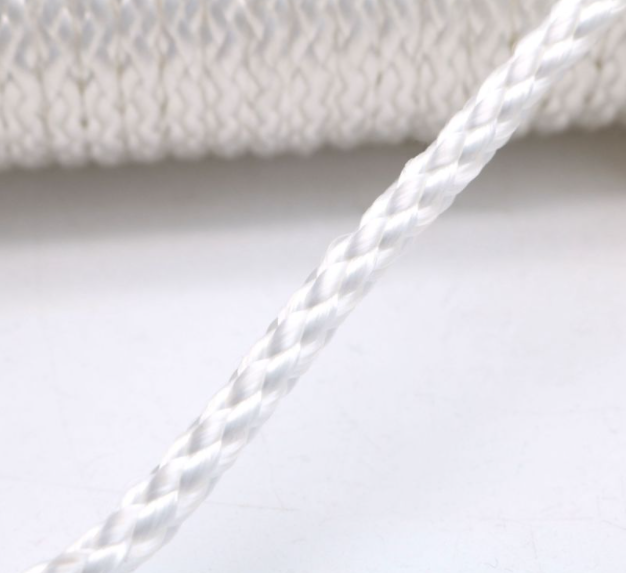Since the introduction of synthetic fibers to the rope industry in the 1950s, customers have had many different options for rope materials. Each rope fiber is unique in its characteristics and has its own advantages and disadvantages. Today, we would like to talk about the advantages of using nylon rope.

If you are looking for high strength ropes, nylon ropes are a good choice. Nylon is the strongest of the most common rope fibers, much stronger than polypropylene, polyethylene or organic fibers, and barely beating out polyester.
Nylon has a high tensile coefficient, which provides a degree of elasticity that comes in handy in some applications. Nylon rope has a stretch at break of about 15-28%, which means that at the high end it is almost twice as strong as polyester.
Nylon rope is well suited for shock absorption and dynamic load applications because of its elasticity, making it a clear choice for mooring and towing activities as well as certain anchoring applications.

Another awesome advantage of nylon rope is its resistance to abrasion, UV, mold, rot and chemical exposure.
The high abrasion resistance of nylon rope means it lasts a long time, and it withstands UV rays that can deteriorate the rope. Because of its high electrical resistance, nylon will not degrade from exposure to most chemicals and organic solvents, and is resistant to rot, mildew and other moisture-related effects.
Nylon ropes are usually braided or twisted. Both options make nylon rope very versatile. Using braided nylon rope is the strongest option. The tightly woven lockstitch construction will not come apart and provides a strong, stable rope. However, a twisted rope will give you a more balanced rope that will hang straight rather than twisted.

One of the only weaknesses of nylon rope is that it absorbs moisture and therefore weakens when wet or submerged in water. The Rope Research Institute rates the breaking strength of wet nylon rope at about 85-90% of dry breaking. However, this effect is functionally minimal and nylon rope is still often used for mooring and anchor lines.
Probably one of the most versatile ropes, nylon rope is commonly used in pulley systems or winches because of its abrasion resistance and shock absorption. The shock absorbing properties of nylon rope make it an ideal rope for lifting or hauling work where the rope needs to absorb dynamic loads.Clearly, the advantages of using nylon rope are enormous, and as a result, nylon rope can be used for a variety of projects. Every project is different, but nylon rope is still an important staple with many different uses.
At BARON Rope, we offer the best quality and selection of nylon rope. We are the nylon rope experts. Contact us today to learn more!